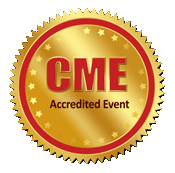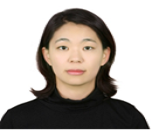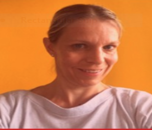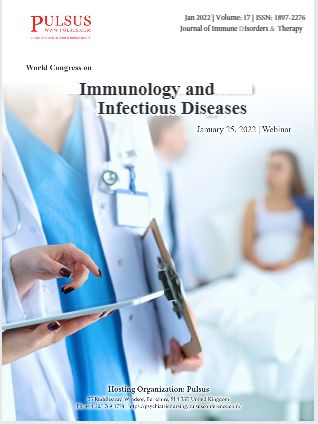Renowned Speakers
We’ve invited the top most influential speakers from around the world to give inspirational talks and lead practical workshops.
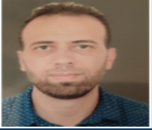
Hussein Fayyad Kazan
Laboratory of Cancer Biology and Molecular Immunology, Faculty of Sciences I, Lebanese University, Hadath. Lebanon
Conference Information
Welcome Message
We are looking forward to welcoming all participants to the “3rd World Congress on Cancer Immunology and Immunotherapy,” which will be held in Dublin, Ireland on June 06-07, 2022. This conference will provide fresh ideas, convictions, strategies, and tactics in a setting unlike any other, with an exceptional lineup of keynote speakers, high-quality participants, and engaging content.
About conference
Target audience:
-
Immunologists
-
Microbiologists
-
Pathologists
-
Bioinformaticians
-
Physicians
-
University Professors
-
Research Scholars
-
Laboratory technicians
-
Business Entrepreneurs
-
Immunology Societies and associations
-
Healthcare Industries
-
Pharmaceutical Industries
-
Vaccine Producing companies
Conference Opportunities
For Researchers and Faculty Members:
- Keynote presentations
- Speaker Presentations
- Poster Display
- E-Poster presentation
- Young Research Forum
- Student presentations
- Delegates or attendees
For Universities, Associations & Societies:
- Association Partnering
- Collaboration proposals
- Academic Partnering
- Group Participation
For Students and Research Scholars:
- Poster Competition (Winner will get Best Poster Award)
- Young Researcher Forum (YRF Award to the best presenter)
- Student Attendee
- Group registrations
For Business Delegates:
- Speaker Presentations
- Networking opportunities
- Audience participation
For Product Manufacturers:
- Sponsorship’s opportunities
- Product launch
- Scientific Partnering
- Marketing and Networking with clients
Session & Tracks
TRACK 1: Tumor Immunology
Tumor immunology is the study of the relationship between immune function and tumor cells, which is important for comprehending tumor rejection and progression. Tissue-resident and blood-derived cells, as well as the immune systems involved in cancer growth, are exceedingly complex. Tissue-resident and blood-derived cells, as well as immune systems implicated in the development of cancer, are exceedingly complex. The human immune system generates an endogenous response to highly immunogenic tumor cells.
Related Societies
Japanese Society for Immunology, Clinical Immunology Society, Society for Immunology and Immunopathology, Turku Immunology Centre, Canadian Society of Allergy and Clinical Immunology, Cuban Society for Immunology, Norwegian Society for Immunology
TRACK 2: Immunology
In medicine and biology, immunology is the study of the immune system. Autoimmunity, allergies, and cancer are among the disorders that can arise when the immune system isn't functioning properly. Immune responses are increasingly being proven to have a role in the development of a range of common maladies that were previously assumed to be immune-related, such as metabolic, cardiovascular, and neurodegenerative diseases like Alzheimer's disease.
Related Societies:
British Society for Immunology , The American Association of Immunologists , Clinical Immunology Society , Norwegian Society for Immunology (NSI) ,International Union of Immunological Societies :IUIS ,European Federation of Immunological Societies: EFI , Society for Mucosal Immunology , Australian and New Zealand Society for Immunology , Japanese Society for Immunology
TRACK 3: Transplantation Immunology
The process of shifting cells, tissues, or organs from one location to another, either inside the same person or between a donor and a recipient, is known as transplantation. An organ system can be replaced with a healthy organ or tissue from a donor if it fails or becomes damaged as a result of disease or injury.Organ transplantation is a serious procedure that is only considered when all other therapeutic options have been exhausted. As a result, it's frequently a life-saving procedure.
Related Societies
Japanese Society for Immunology, Clinical Immunology Society, Society for Immunology and Immunopathology, Turku Immunology Centre, Canadian Society of Allergy and Clinical Immunology, Cuban Society for Immunology, Norwegian Society for Immunology
TRACK 4: Immunology of Infectious Diseases
To regulate viral and bacterial infection, the immune system has developed a number of strategies, ranging from direct pathogen killing to the production of cytokines that impede reproduction. Pathogens have developed a range of immune evasion methods to evade immune detection of infected cells by inhibiting cytokine activity.
Related Societies:
British Society for Immunology , The American Association of Immunologists , Clinical Immunology Society , Norwegian Society for Immunology (NSI) ,International Union of Immunological Societies :IUIS ,European Federation of Immunological Societies: EFI , Society for Mucosal Immunology , Australian and New Zealand Society for Immunology , Japanese Society for Immunology
TRACK 5: Autoimmunity
The immune response in autoimmune illness is similar to that seen in infections, with the exception that self antigens are (or become) the adaptive immune system's target. These self antigens may be responsible for a process that is exclusive to a single organ. When our immune system assaults our own tissues, we get autoimmune disease. T-cell receptors and B-cell receptors, like other adaptive immune responses, are focused on specific antigens. In contrast to infection, the antigens recognized by these cells are processed from proteins inside the target organ, resulting in a persistent inflammatory response that affects the tissue's normal function.
Related Societies:
American Academy of Allergy, Asthma and Immunology, American Association of Immunologists, National Institute of Allergy & Infectious Diseases, Canadian Society for Immunology, British Society for Immunology, German Society for Immunology, Finnish Society for Immunology
TRACK 6: Healthcare
Companies that offer medical services, produce medical equipment or medications, offer medical insurance, or otherwise enable the delivery of healthcare to patients make up the healthcare industry. Healthcare markets are characterised by a number of important variables from an economic standpoint. Because of some of these economic variables, government engagement in healthcare markets and activities is widespread.
Related Societies
Japanese Society for Immunology, Clinical Immunology Society, Society for Immunology and Immunopathology, Turku Immunology Centre, Canadian Society of Allergy and Clinical Immunology, Cuban Society for Immunology, Norwegian Society for Immunology
TRACK 7: Immune disorders
Disturbances induced by a scarcity, disappointment, or distorted activity of the invulnerable framework, or the growth of a harmful tumour inside the safe framework, are considered a safe concern. There are several types of immunodeficiency issues (both mandatory and elective), allergies, and autoimmune infections. Hypersensitivity and fiery diseases are safe issues created by the insusceptible framework's overreaction. The analysis, prediction, and treatment techniques for all changes are enhancing research in the disciplines of medicine and immunology. So yet, the reasons and treatments for a number of those disarrays have not been discovered.
Related Societies:
British Society for Immunology , The American Association of Immunologists , Clinical Immunology Society , Norwegian Society for Immunology (NSI) ,International Union of Immunological Societies :IUIS ,European Federation of Immunological Societies: EFI , Society for Mucosal Immunology , Australian and New Zealand Society for Immunology , Japanese Society for Immunology
TRACK 8: Molecular and Cellular mechanism of Allergic diseases
Every immunological segment has its own formation and capacity component routes. Sub-atomic and cell parameters related to these components should also be studied in order to gain a better knowledge of the resistant structure and discover solutions to any safety concerns.A few different go-between, cell types are among the sub-atomic and cell systems that intervene negatively vulnerable aggravation. Excessive touchiness of the safe framework as a result of genetic characteristics or natural components causes sensitivity or unfavourably sensitive diseases.
Related Societies
Japanese Society for Immunology, Clinical Immunology Society, Society for Immunology and Immunopathology, Turku Immunology Centre, Canadian Society of Allergy and Clinical Immunology, Cuban Society for Immunology, Norwegian Society for Immunology
TRACK 9: Diagnostic Immunology
Diagnostic immunology, also known as immunodiagnostics, is a set of tests and methods used to diagnose hypersensitivity, asthma, and infectious diseases such as AIDS, rheumatoid arthritis, multiple sclerosis, and type 1 diabetes. Measure units, instruments, and administrations are all part of the sensitivity analysis.Other analytic approaches include histology and immunology examinations, subatomic techniques, and insusceptible framework assessment.
Related Societies:
British Society for Immunology , The American Association of Immunologists , Clinical Immunology Society , Norwegian Society for Immunology (NSI) ,International Union of Immunological Societies :IUIS ,European Federation of Immunological Societies: EFI , Society for Mucosal Immunology , Australian and New Zealand Society for Immunology , Japanese Society for Immunology
TRACK 10: Neonatal Immunology
From the standpoint of associate degree medical specialisation, the infant, whether preterm or foetal age, may be a unique host. Many components of the system are less effective in neonates than in adults, leading to the idea of "immunodeficiency of immaturity,". The adaptive importance of those changes for newborn survival has yet to be determined.
Related Societies
Japanese Society for Immunology, Clinical Immunology Society, Society for Immunology and Immunopathology, Turku Immunology Centre, Canadian Society of Allergy and Clinical Immunology, Cuban Society for Immunology, Norwegian Society for Immunology
TRACK 11: Immunotoxicology
Immunotoxicology is the study of systemic effects that occur as a result of direct or indirect exposure to chemicals, biologic materials, and, in some cases, physiological variables, collectively referred to as agents, during occupational, environmental, or therapeutic exposure. It includes research on altered immunologic events linked to human and animal species exposure, as well as immunological regulation.
Related Societies:
British Society for Immunology , The American Association of Immunologists , Clinical Immunology Society , Norwegian Society for Immunology (NSI) ,International Union of Immunological Societies :IUIS ,European Federation of Immunological Societies: EFI , Society for Mucosal Immunology , Australian and New Zealand Society for Immunology , Japanese Society for Immunology
TRACK 12: Immunohematology
Immunohematology is a field of haematology that examines antigen-antibody responses and comparable phenomena, as well as the pathogenicity of blood diseases and blood cell membrane-bound organelles. Blood type, cross-matching, and antibody detection are all part of immunohematology. The study of RBC antigens and antibodies in relation to blood transfusions is known as immunohematology.
Related Societies
Japanese Society for Immunology, Clinical Immunology Society, Society for Immunology and Immunopathology, Turku Immunology Centre, Canadian Society of Allergy and Clinical Immunology, Cuban Society for Immunology, Norwegian Society for Immunology
TRACK 13: Vaccines and Immunization
The process of creating and developing vaccinations that include biological agents that are almost identical to disease-causing bacteria in weakened forms, implying that the pathogenicity of the microorganism vaccines is destroyed. A vaccination is a substance that resembles a disease-causing germ and is frequently manufactured from weakened or destroyed microorganisms, their toxins, or one of their surface proteins. The agent induces the body's system to recognise the agent as a threat, eliminate it, and destroy any similar bacteria it may meet in the future.
Related Societies:
British Society for Immunology , The American Association of Immunologists , Clinical Immunology Society , Norwegian Society for Immunology (NSI) ,International Union of Immunological Societies :IUIS ,European Federation of Immunological Societies: EFI , Society for Mucosal Immunology , Australian and New Zealand Society for Immunology , Japanese Society for Immunology
TRACK 14: Prevention and Therapy
The best way to prevent hypersensitivity is to avoid allergens. Nutrient allergies such as peanuts, seafood, milk, egg, and soybean should be avoided. Medication allergies, residue, and pet animals may also be avoided to avoid being negatively sensitive. Other anti-inflammatory methods include limiting breast feeding for the first four months of life, including Vitamin C, Vitamin E, Omega-3 polyunsaturated oils, and excellent probiotic microorganisms in the diet, as well as the use of Leukotriene receptor antagonists, steroid sprays, and decongestants.
Related Societies
Japanese Society for Immunology, Clinical Immunology Society, Society for Immunology and Immunopathology, Turku Immunology Centre, Canadian Society of Allergy and Clinical Immunology, Cuban Society for Immunology, Norwegian Society for Immunology
TRACK 15: Microbiome and epigenetics
The host's associated microbiota is the ultimate environmental trigger for development. The gut microbiota and cancer are also connected, according to research. Because of its spatial location and ability to convert environmental and diet-derived compounds before they reach human cells, certain microbial species are found more frequently in cancer tissue than in flanking normal tissue throughout the course of disease, from early cancer growth to metastasisepigenetic processes.
Related Societies:
British Society for Immunology , The American Association of Immunologists , Clinical Immunology Society , Norwegian Society for Immunology (NSI) ,International Union of Immunological Societies :IUIS ,European Federation of Immunological Societies: EFI , Society for Mucosal Immunology , Australian and New Zealand Society for Immunology , Japanese Society for Immunology
TRACK 16: Microbiology
Bacteria, viruses, archaea, fungus, and protozoa are examples of tiny creatures studied in microbiology. It also covers important study on microbe biochemistry, physiology, cell biology, ecology, evolution, and clinical aspects, as well as the host response to these agents.
Related Societies:
British Society for Immunology , The American Association of Immunologists , Clinical Immunology Society , Norwegian Society for Immunology (NSI) ,International Union of Immunological Societies :IUIS ,European Federation of Immunological Societies: EFI , Society for Mucosal Immunology , Australian and New Zealand Society for Immunology , Japanese Society for Immunology
TRACK 17: Veterinary immunology
Veterinary immunology is the discipline of immunology that studies all aspects of animals' immune systems. It has a zoological and veterinary science connection. Development of vaccines, understanding the mechanism of the animal immune system, vaccine failure, and the adverse consequences of vaccinations are only a few of the key study topics in this discipline.Veterinary immunology is gaining popularity as the number of pets and farm animals continues to rise rapidly. It aids the agricultural field in a variety of ways by introducing new immunological approaches, as farm animals are susceptible to a variety of infectious illnesses, owing to inadequate sanitation in their surroundings.
Related Societies
Japanese Society for Immunology, Clinical Immunology Society, Society for Immunology and Immunopathology, Turku Immunology Centre, Canadian Society of Allergy and Clinical Immunology, Cuban Society for Immunology, Norwegian Society for Immunology
TRACK 18: Plant immunology
The study of how plants defend themselves against diseases and diseases is known as plant immunology. Despite the fact that plants lack adaptive immunity, they have developed an innate immunity system capable of detecting and responding to pathogens. Plants have a two-branched immune system.The common microbial molecules are recognised and responded to by one branch, while the pathogen virulence factor is recognised and responded to by the other.
Related Societies:
British Society for Immunology , The American Association of Immunologists , Clinical Immunology Society , Norwegian Society for Immunology (NSI) ,International Union of Immunological Societies :IUIS ,European Federation of Immunological Societies: EFI , Society for Mucosal Immunology , Australian and New Zealand Society for Immunology , Japanese Society for Immunology
TRACK 19: Viral immunology
Viral immunology is the study of how viral invasion affects the host system and how the host system's immune system responds to the viral infection. Both DNA and RNA infections are included in this category. Viruses utilise a variety of tactics to get around the immune system of their hosts. Epithelial barrier and early non-specific immune responses are two innate immune responses to viral infection.Antiviral antibodies, cytotoxic T lymphocytes, and helper T cells are examples of adaptive immune responses to viral infections.
Related Societies
Japanese Society for Immunology, Clinical Immunology Society, Society for Immunology and Immunopathology, Turku Immunology Centre, Canadian Society of Allergy and Clinical Immunology, Cuban Society for Immunology, Norwegian Society for Immunology
TRACK 20: Ocular immunology
Ocular immunology is an area of medicine that deals with the diagnosis and treatment of inflammatory eye disorders. The patient's vision may be impaired, and in certain situations, these disorders might result in significant video loss. Uveitis, intraocular inflammation, scleritis, and iritis are examples of immunologically mediated illnesses. The eye, on the other hand, is immunologically fortunate because the allograft is accepted by the cornea.An integrated immune system on the ocular surface fights infections. In tears, conjunctiva, and even the cornea, humoral, cellular, adaptive, and innate immunity combine to provide integrated immune protection.
Related Societies:
British Society for Immunology , The American Association of Immunologists , Clinical Immunology Society , Norwegian Society for Immunology (NSI) ,International Union of Immunological Societies :IUIS ,European Federation of Immunological Societies: EFI , Society for Mucosal Immunology , Australian and New Zealand Society for Immunology , Japanese Society for Immunology
TRACK 21:Immunopathology
Immunopathology is the study of illnesses in which humoral (body fluid) and cellular immunological factors have a role in the pathology of cells, tissues, and the host. Immune responses that are defective or dysfunctional frequently result in sickness or disease. Normally protective antibody or T cell immune systems are hyperactive or produced against self antigens, leading in harm to cells or organs.
Related Societies:
British Society for Immunology , The American Association of Immunologists , Clinical Immunology Society , Norwegian Society for Immunology (NSI) ,International Union of Immunological Societies :IUIS ,European Federation of Immunological Societies: EFI , Society for Mucosal Immunology , Australian and New Zealand Society for Immunology , Japanese Society for Immunology
TRACK 22: Coronavirus
Coronavirus illness is an infectious disease caused by a coronavirus that was recently found. The majority of patients infected with the COVID-19 virus will have mild to moderate respiratory symptoms and can recover without having any specific therapy. People over the age of 65, as well as those with underlying medical conditions such as cardiovascular disease, diabetes, or respiratory disease, are at a higher risk of developing serious illness.
Related Societies:
British Society for Immunology , The American Association of Immunologists , Clinical Immunology Society , Norwegian Society for Immunology (NSI) ,International Union of Immunological Societies :IUIS ,European Federation of Immunological Societies: EFI , Society for Mucosal Immunology , Australian and New Zealand Society for Immunology , Japanese Society for Immunology
Market Analysis
Over the forecast period of 2020 – 2030, the infectious immunology market is expected to rise due to an increase in the frequency of infectious illnesses, which has necessitated the development of Immunological diagnostics and treatments. Infectious illnesses such as HIV, pneumonia, malaria, hepatitis, and TB cause significant morbidity and mortality in communities.
In theory, infectious disease Immunology entails studying how the immune system reacts to infectious pathogens, as well as how infectious pathogens behave, change, or escape the immune system.
The high prevalence of infectious illnesses, which cause significant morbidity in developing nations, is a major driver of the infectious Immunology industry. The economic cost of infectious illnesses is prompting governments to increase clinical trials for infectious disease research.
The interrelationship between the immune system and infectious illnesses for illness prediction is being investigated further by research bodies and scientific organisations, which is indirectly impacting the infectious Immunology market.
The rising frequency of immunological illnesses caused by environmental factors is expected to propel the worldwide Immunology Market forward in the future years. The market was valued at US$ 77,365.4 Mn in 2018, according to a Fortune Business Insights research titled "IMMUNOLOGY MARKET: GLOBAL MARKET ANALYSIS, INSIGHTS AND FORECAST, 2019-2026."
The worldwide Immunology Market is expected to grow in the next years, owing to the rising demand for Immunology pharmaceuticals, which is a consequence of the rising frequency of immunological illnesses. Because of the seriousness of immunological illnesses, there is a growing awareness of them all over the world. The government as well as public groups, have undertaken a number of projects and advisory programmes.
As a result, demand for immunology medications will rise. Furthermore, improved immunology medicine efficacy has contributed to improved patient outcomes, which has resulted in the worldwide Immunology Market expanding.
The immunology medication industry is influenced by a variety of variables. Rheumatoid Arthritis therapies accounted for the largest market segment in immunology among the major disorders. This competitive market is driven by improved therapy options with TNF treatments. There is a big pipeline of pharmaceuticals under development, and the increase in clinical trials demonstrates the industry's expansion.
As less priced biosimilars enter the market, patent expirations will also push the market to move forward. While several forces are pushing the market, major hurdles are preventing the entire value from skyrocketing. Stringent FDA restrictions, regulatory restrictions on biosimilars, and increased pricing pressure owing to competition are just a few examples.
Past Conference Report
We would like to express our gratitude to all of our outstanding keynote speakers, conference attendees, students, associations, media partners, and visitors for helping to make World Immunology 2019 a success.
Pulsus organized the World Congress on Immunology 2019 in Hotel Hesperia Barcelona Del Mar, Barcelona, Spain.
The talks and discussions focused on the topic of "Immunology at its Congruity" and it was a remarkable achievement in which renowned keynote speakers from many reputed organizations and institutions made their bright presence felt and catered to the social affair.
Pulsus would like to express its gratitude to the session chairs/co-chairs, as well as the session speakers, for making this meeting more helpful and successful for the researchers, educators, investigators, postgraduate and graduate students, and delegates from Immunology parts who attended.
The understudies and young researchers from different nations went to and vie for Best Student Oral Award.
World Immunology 2019 has been carefully planned around a unifying concept that will serve as the platform for future scientific breakthroughs.
The features of the gathering were the edifying speaker addresses from:
Sandra Sigala| University of Brescia | Italy
Dr Carlos Carrion Ojeda | INSN Brena | Peru
Andrea Vercelli | CEAV internal medicine| Italy
Dr Mery Hamui Sutton | Autonomous Metropolitan University |Mexico
Fadi Ata Almhadin | Burjeel Hospital | United Arab Emirates
Maria Morozova | Medical expert,BIOCAD | Russia
Christine Bourgeois | Universite Paris Sud | France
Gabriane Nascimento Porcino | Universidade São Paulo | Brazil
Rudolf Kunze | Pentracor GmbH, Hennigsdorf | Germany



